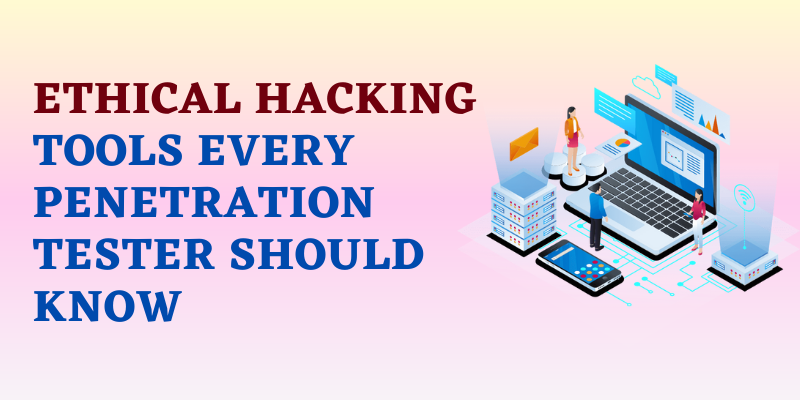In today’s interconnected digital world, cybersecurity has become paramount. Ethical hackers, also known as penetration testers, play a vital role in identifying vulnerabilities within networks and systems before unknown hackers can exploit them. These professionals rely on specialized tools designed to simulate real-world attacks to conduct practical penetration tests. This blog will delve into the Ethical Hacking Tools Every Penetration Tester Should Know. To build your hacking skills, join Ethical Hacking Course In Pune at FITA Academy, where our knowledgeable instructors will train you with case studies and real-world examples.
Ethical hacking involves simulating cyberattacks to identify and rectify security vulnerabilities in systems, networks, and applications. Unlike malicious hackers, ethical hackers operate within legal boundaries and use their skills to improve cybersecurity by exposing weaknesses that cybercriminals could exploit.
Penetration testers use a variety of tools categorized into different types of testing.
Network Scanning Tools
These tools help identify active hosts, open ports, and services on a network. Examples include Nmap and Nessus. Nmap provides detailed information about network devices, while Nessus offers vulnerability assessment capabilities.
Vulnerability Assessment Tools
Tools like OpenVAS and Nexpose help penetration testers discover and assess vulnerabilities within a system or network. They provide detailed reports on potential security risks. Join, Ethical Hacking Course In Delhi to have hands-on experience in tools like; OpenVAS and Nexpose.
Exploitation Tools
Metasploit is a popular tool that penetration testers use to simulate real-world attacks. Exploitation tools provide a framework to develop, test, and execute exploit code against a distant target.
Password Cracking Tools
Ethical hackers use tools like John the Ripper and Hydra to test the strength of passwords within a system. This helps identify weak passwords that could be easily compromised.
Web Application Security Tools
Tools like Burp Suite and OWASP ZAP are crucial for assessing the security of web applications. They help identify vulnerabilities like SQL injection, cross-site scripting (XSS), and more.
Wireless Network Tools
Tools like Aircrack-ng are used to assess the security of wireless networks. Penetration testers can identify weak encryption methods and potential attack vectors. Enroll Ethical Hacking Course In Jaipur and have expertise in wireless networking tools.
Penetration testers use a different set of tools to do the following roles and responsibilities
- Meeting with clients to go through the security systems.
- Finding out alternative options to security features which are not working.
- Performing penetration testing on the systems
- Identifying and documenting security vulnerabilities and flaws.
- Testing the level of security in the network.
- Creating penetration test reports.
- Finding out the best security solutions.
- Verifying the organization’s network topology, system and vulnerable entry points.
- Performing penetration testing after the implementation of suggested new security features.
In the ever-evolving landscape of cybersecurity, ethical hacking tools are indispensable for assessing and fortifying the security of digital systems. Penetration testers play a vital role in identifying vulnerabilities before malicious actors can exploit them, ultimately helping organizations safeguard sensitive data and maintain trust with their users. By understanding and effectively utilizing a wide range of ethical hacking tools, these professionals contribute to a more secure online environment. Join, Ethical Hacking Course In Mumbai and learn the indispensable skills to become an ethical hacker.

